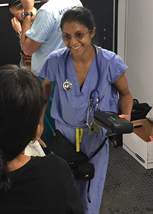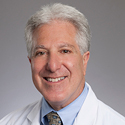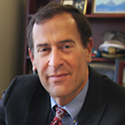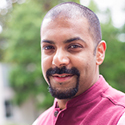Ebola’s Legacy: Children with Cataracts
 |
| Dr. Jessica Shantha, left, examined Isatu Tholley’s eye a day after a cataract was removed, taking appropriate precautions for any lingering virus in the eye. Credit: Jane Hahn, The New York Times. |
|
Before the Ebola epidemic in West Africa from 2013 to 2016, doctors did not realize how much damage the disease could leave in its wake, because previous outbreaks were small and survivors few. Eye disease, with the specter of blindness, has become a dreaded complication.
There are about 17,000 Ebola survivors in West Africa, and researchers estimate that 20 percent of them have had a type of severe inflammation inside the eye, uveitis. It can cause blindness, but even if it resolves and sight returns, cataracts can quickly follow. Usually, just one eye is affected.
Until recently, surgeons have hesitated to remove cataracts from Ebola survivors, for fear that the insides of their eyes might still harbor the virus.
But physicians from Emory University have made a series of visits to West Africa to study eye problems in survivors, treat them and find ways to prevent blindness if more Ebola outbreaks occur. One goal has been to look for the virus in the eyes of survivors with cataracts, to let local surgeons know whether it is safe to operate.
"Hopefully, more patients will get access to cataract surgery, and practitioners will feel safe," said Dr. Jessica Shantha, an ophthalmologist from Emory.
Read the article.
Taking our Expertise Beyond Emory
 |
|
| Carla Haack |
|
In a spirit of service that extends far beyond our campus, the SOM team continues to provide services to hurricane survivors. On a recent trip to Puerto Rico, surgeon Carla Haack and colleagues worked with a team from Florida to assess and treat various patient needs: "Some areas we were in hadn't seen any help before we got there 22 days after the storm. We provided medical attention to about 350
patients. . .and brought food, water purification systems, medications, mosquito repellent/netting, and solar lamps. . . . Diagnoses included. . .trauma, primary care (lots of diabetes and hypertension), infections related to floodwater, pulmonary problems related to mold in flooded homes, ENT, multiple sclerosis, autism, and, unfortunately, a fair share of suicidal ideation. The problems are very real, and they are not likely to have a quick or easy solution. The spirit of most people is undaunted and beyond awe-inspiring."
USAID Awards Emory $4.5M to Establish Physical Therapy Profession in Country of Georgia
USAID has awarded Emory a four-year, $4.5 million grant to establish the profession of physical therapy in the country of Georgia. The grant will be used to establish a PT training center in the Emory Kobaladze Learning Center in Tbilisi, and to establish a clinic in Tbilisi and Batumi, the second largest city.
"There is a strong need for physical therapy services not only for the returning wounded soldiers who are part of the coalition forces in Afghanistan and Iraq, but for the overall population that suffers from chronic conditions like strokes, Parkinson disease and other conditions where physical, occupational and speech therapy will make a profound difference," says Zoher Kapasi, director of the Division of Physical Therapy and professor of rehabilitation medicine.
In addition to Kapasi, the SOM team includes Archil Undilashvili, director of educational programs at Emory and assistant adjunct professor; Marie Johanson, professor and associate director of the Division of Physical Therapy; Gordon Churchward, assistant dean for medical education and student affairs; and Kenneth Walker, professor of medicine.
Learn more.
RISE Research Center to Pursue Reproductive Health Research in Southeast
The newly established Center for Reproductive Health Research in the Southeast (RISE), at the Rollins School of Public Health, has received $6.8 million in funding for the next three years from a large, private, anonymous foundation. Fifteen of the center's initial directors and core investigators come from schools across Emory and include SOM faculty Carrie Cwiak, Melissa Kottke, Eva Lathrop, Lisa Haddad, and Erin Berry.
RISE aims to build an evidence base and implement solutions for adverse reproductive health outcomes and disparities impacting women and their families in the southeastern United States. To reach its goals, the center has developed initiatives that fall under three main cores: a research core, a translation core, and an education and training core, which will support at least two post-doctoral fellows and four PhD students during this funding cycle.
Learn More.
|









